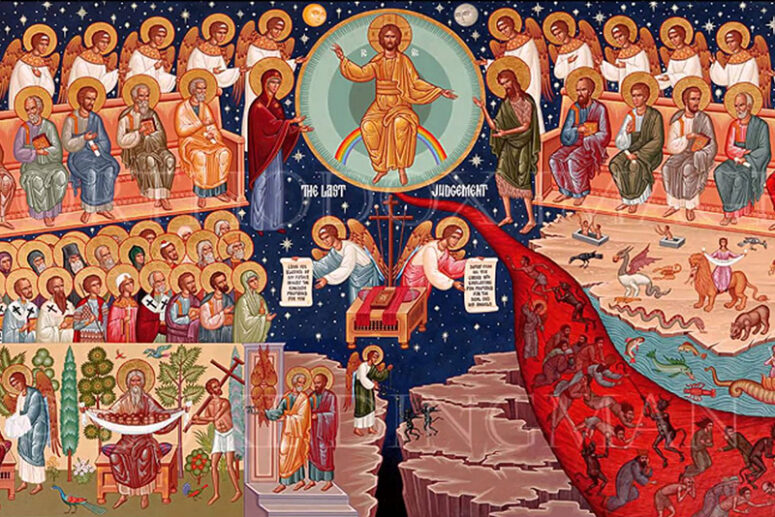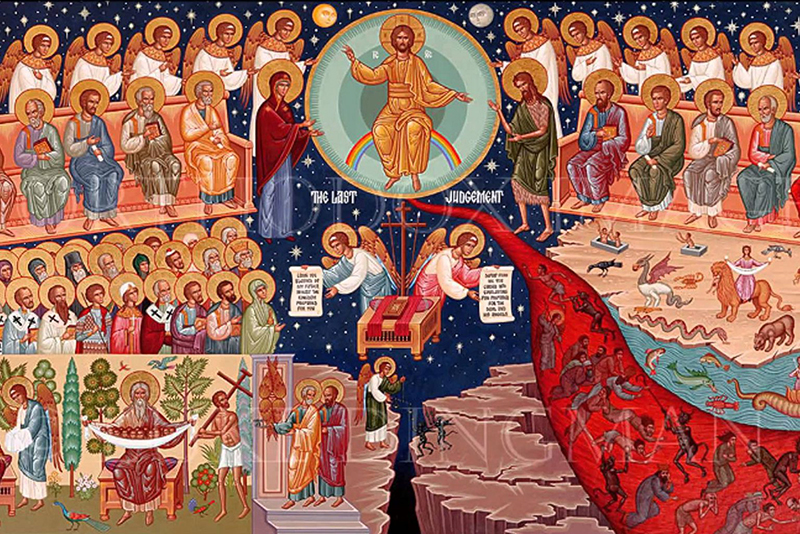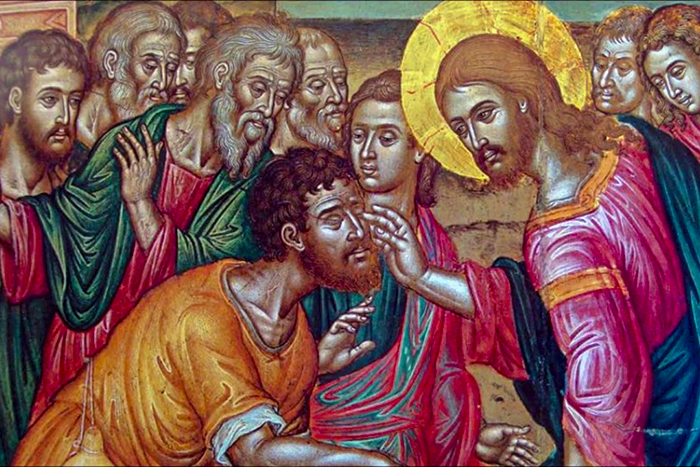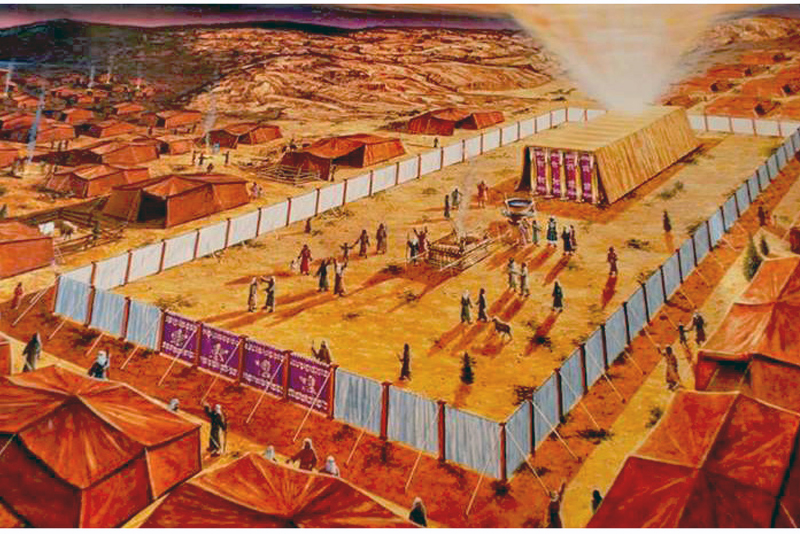
Concluding his discourse on the destruction of Jerusalem and the end of the world, Jesus Christ says, “always be on the watch, and pray that you may be able to escape all that is about to happen and that you may be able to stand before the Son of Man.” (Luke 21:36). To be on the watch, spiritually, means not to indulge in carousing, drunkenness and the anxieties of life (Luke 21:34) In the eyes of the holy fathers, this call for watchfulness and vigilance points out the reason why God chose to hide from us the date of the end of the world. “About that day or hour no one knows, not even the angels in heaven, nor the Son, but only the Father.” (Mark 13:32).
Saint Basil the Great interprets this verse as follows: “He [the Lord] was silent about the date of the Last Judgement, and the single reason for that was that it would be of no benefit for people to know it. Remaining in constant anticipation strengthens people in their piety. Conversely, knowing that the final judgement is still many years away would discourage them from living righteously by giving them the hope that they still had enough time to repent and be saved.” Other holy fathers and scholars of the church have spoken in a similar vein. They emphasised the moral and spiritual aspects of knowing the date and time of the Day of Judgment as they discussed the spiritual benefits and harms of knowing the date of the end of the world.
Knowing the day of the final judgement is like knowing the hour of our departure, as death to each of us is our private apocalypse. Imagine, then, that you know the exact time of our departure. Supposing that we know that it will happen thirty or forty years later. How would this knowledge change our behaviour? Would it help us by making us more zealous in observing the commandments of Christ and leading righteous lives? Or would it push us deeper into despair and hopelessness? Would it have any effect on us at all? Most probably, this knowledge would change nothing. People already know that their death is imminent, but they are afraid of this knowledge and evade all thoughts about their demise. Our mental defences keep us from recognising the finiteness of our existence to suppress the existential anxiety in which our fear of death manifests itself. These same defences will still be in place even when we know the hour of our death. As we were reminded in a recent popular film, people avoid looking up to heaven.
But the Holy Scripture and the Church fathers recommend a different way to live full lives and break free from our anxieties: we should stop running away from the thoughts of our death, but recognise instead that our life on earth is limited. The exact time of our end would then become irrelevant. We may depart in a minute or live for another five decades. As we read in the Book of Sirach (7:39), In everything you do, remember your end, and you will never sin. On a more practical level, Father Alexander Yelchaninov, our contemporary, reflects: “We would find many of our difficulties resolved, and many things in their right places if we gave ourselves the trouble to appreciate that our existence is only temporary and realised the possibility of our immediate death. That would automatically make us pay less attention to our small troubles and minor concerns and more to the most important things. Our complacency and self-indulgence are pathetic. The fragile island of our earthly existence will inevitably be dissolved in the life to come. One cannot live in truth or dignity without preparing oneself for one’s death and without contemplating death and eternal life in one’s heart.
Contemporary existential psychologists agree. A known psychotherapist and publicist Irwin Yalom writes that looking death in the face may become an incentive to have a fuller sense of life. He bases his observations on his ten-year experience of working with terminal cancer patients. “Many of these patients were not paralysed with despair; on the contrary, their state of mind improved. They reconsidered their lives and priorities and put things into perspective,” writes Irwin Yalom. He illustrates his observation with the example of Leo Tolstoy’s character Pierre Bezukhov from the novel “War and Peace”. Pierre looks death in the face when, a prisoner of the French, he witnessed the execution by firing squad of his comrades, and barely escaped death himself. From that moment on, he changed his outlook on life, finding meaning and fullness in it.
Contemplation of the end of the world makes sense in only one way — it reminds us about the imminence of the end of all earthly things, including our earthly lives, and brings us to consider the meaning of our life. Knowing the date of the end of the world — or our own demise — will bring us nothing but fear and anxiety and detract us from our focus on spiritual vigilance and salvation of our souls.
Translated by The Catalogue of Good Deeds
Source: https://foma.ru/pochemu-bog-skryvaet-ot-nas-datu-konca-sveta.html




